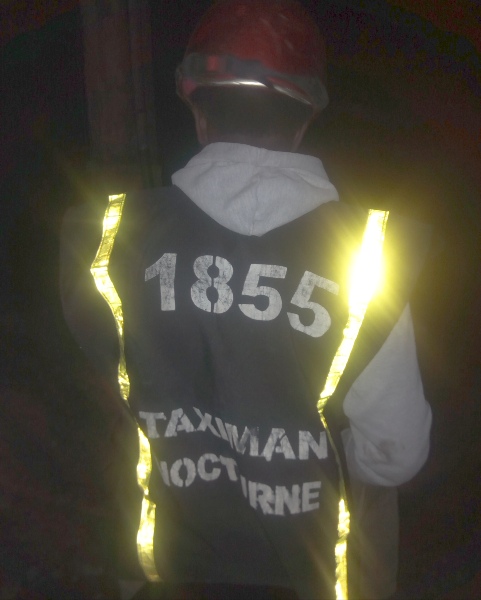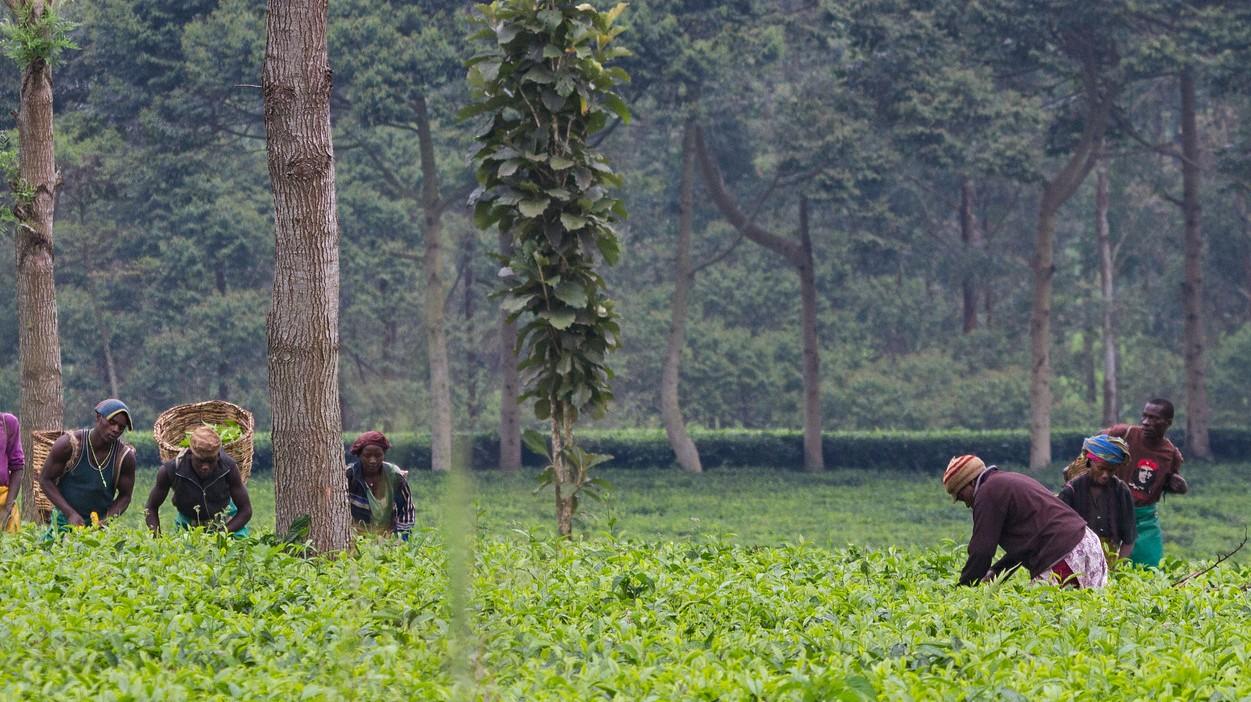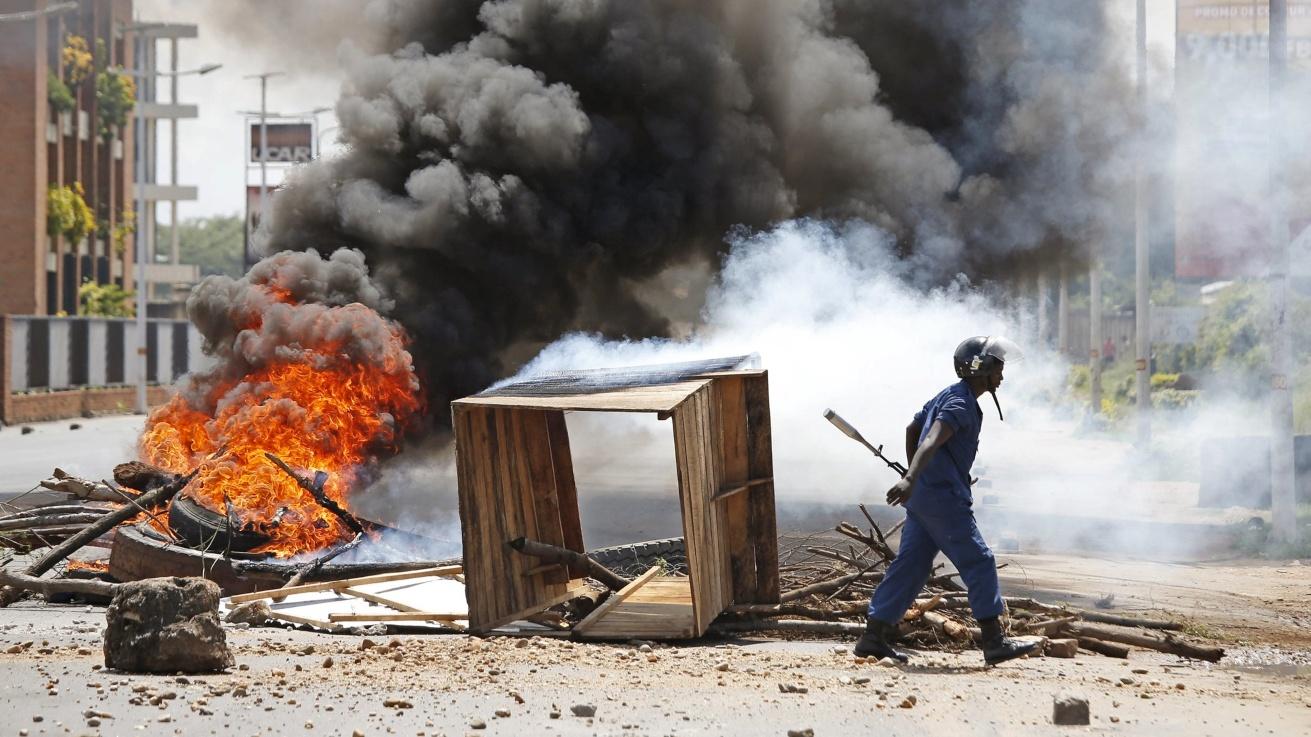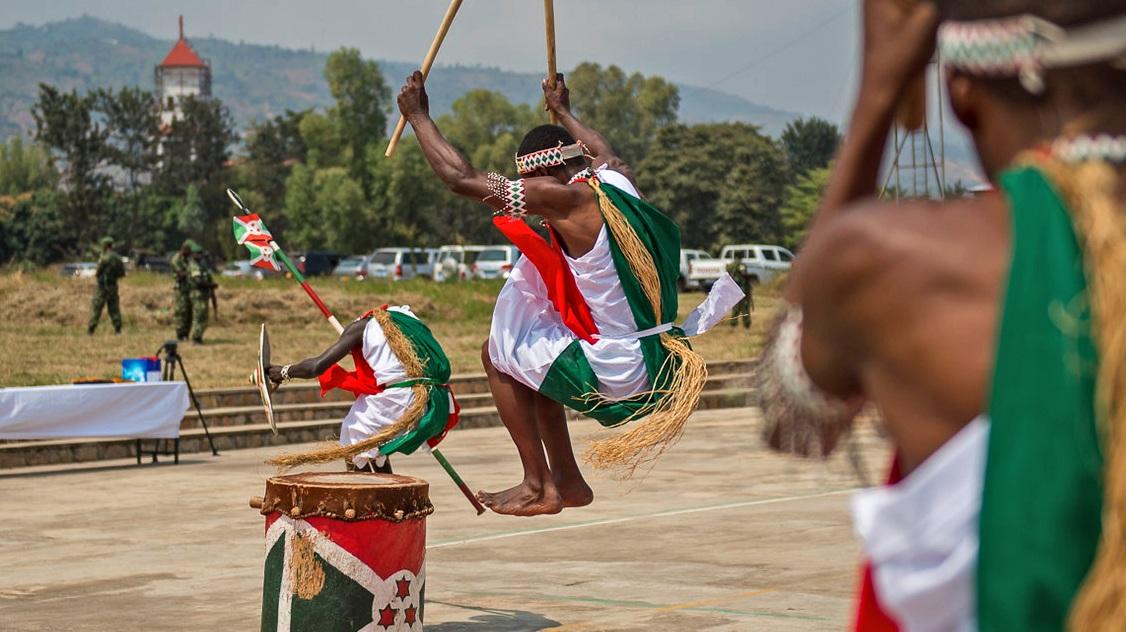Motorcycle taxis are a regular and often essential means of transport for residents in the Democratic Republic of Congo. Samuel Muhindo analyses the role that motorcycle taxi drivers play in securing their clients’ security in the city of Goma, addressing new regulations to enhance public safety and the consequences of curfews in response to the COVID-19 pandemic.
This blog forms part of the Idjwi Series which results from a writing retreat on Idwji Island in Lake Kivu, DRC during which regional researchers gathered to present and refine their own research in November 2019.
In Goma, the provincial capital of North Kivu in eastern Democratic Republic of the Congo (DRC), residents often use motorcycle taxis to move around the city. This mode of public transport is available day and night until the early morning hours. Such accessibility is important for residents and presents opportunities for drivers – or motards as they are called – to uphold public safety.
Although drivers are key to the operation of motorbike taxis as a mode of city transport, they also take on another role in relation to their passengers’ safety: in this respect they are perceived as both heroes and perpetrators of crime in the region.
The city of Goma has been wrought with insecurity predating even the first Congolese war in 1996. Since then, to this day, motorcycle taxi drivers have been predominantly working informally – without road safety certifications or registrations. Anyone who owns or has access to a motorcycle can become a taxi driver. The type of driver and the journey’s context determines whether the service is safe or dangerous for passengers, at times saving or taking their lives and belongings.
Motard heroes and villains
In some cases, drivers are perceived by residents as heroes capable of safeguarding passengers in the event of danger. This includes instances where a motard would take a passenger between locations at night without incident, or avoiding routes known to be dangerous due to road conditions or banditry. This type of driver may also assist a passenger in danger by shouting or honking their horns to alert neighbours to an incident, like a robbery or accident. In such cases, the perpetrator would flee, often pursued and stopped by other motorcycle taxi drivers. However, if these motards can be heroes, they can also be villains.
Some drivers in Goma can be covert aggressors. They can take a passenger on their motorcycle and, instead of delivering them safely to their specified address, drive them to a different location, a place of ambush or assault. Such motards are usually armed and even physically hurt passengers to take their valuables: money, telephones, jewellery. Since 2012, this risk has been exacerbated by the emergence of a gang called ‘FENDER’, which is comprised of children, disgruntled ex-combatants, veterans and identified ‘bandits’ who engage in stealing goods in the area. The gang persists despite measures taken by the government and civil society to address the rising crime rate in Goma.
Enhancing public safety
The city’s mayor Naasson Kubuya Ndoole, in partnership with the President of COTAM, the association of motorcycle taxi drivers, has initiated a motorcycle taxi identification program. COTAM is also charged with coordinating motards in Goma. They have succeeded in registering and providing unique IDs to most drivers, as well as giving them yellow vests so that these vetted drivers can be differentiated from informal ones. Passengers have tried to guarantee their own safety by avoiding using motorcycles without yellow vests at night. Travelling with registered and COTAM-affiliated drivers means that, should anything occur, the driver’s registration number can be brought to the association which holds them accountable for their clients’ safety.

Some passengers avoid giving drivers their true residence address, providing instead that of a nearby location that is populated and well lit. Others use a word-of-mouth referral system to call drivers that have proven to be safe from previous trips with people they know and trust. This is a different form of vetting – not on the part of the association, but on that of residents themselves.
Despite these efforts, public safety measures have been ineffective in Goma. Some drivers end up selling their yellow vests which leads to confusion and allows informal drivers to operate unhindered.
Increased pressures from COVID-19
The current COVID-19 pandemic and regulations to stem its spread – implemented in Goma on 29 April 2020 – have also limited night life as bars, clubs and restaurants were ordered to close their doors and a curfew was put in place. These restrictions have alienated motards and raised discontent. Night tariffs were typically higher than during daytime, and now the public transport providers who depended on these revenues to survive have found themselves unemployed, indebted and desperate.
These combined factors have brought into sharper relief the Janus face of Goma’s motards. On the one hand they are now under mounting pressure to protect clients from crime – at times from their own colleagues. On the other hand, there is an increased incentive to join these criminal ventures, due to the exacerbated precarity of their livelihoods – an inadvertent effect of the government’s response to COVID-19.
It has become imperative to find alternative measures to ensure the safety of Goma’s residents. A possible solution could be to decentralise drivers’ activities: each motard could work in a specified neighbourhood, namely their own. By working in their respective neighbourhoods, the anonymity that may inspire drivers to commit crimes would be eliminated for fear of identification, denunciation and popular justice. The public would be able to distinguish between safe and unsafe drivers, to differentiate the heroes from the villains.
The Idwji Writing Retreat was jointly funded by The Open University’s Strategic Research Area in International Development and Inclusive Innovation and the Centre for Public Authority and International Development (CPAID), LSE.
Photo by Random Institute on Unsplash






Can I contact Author